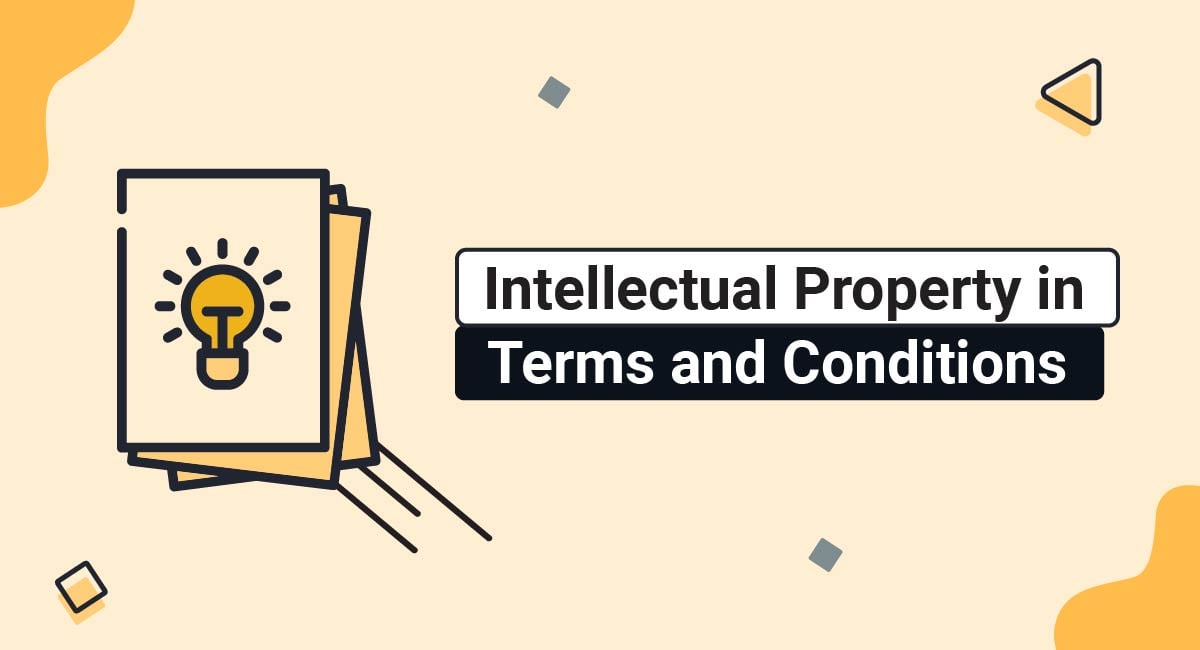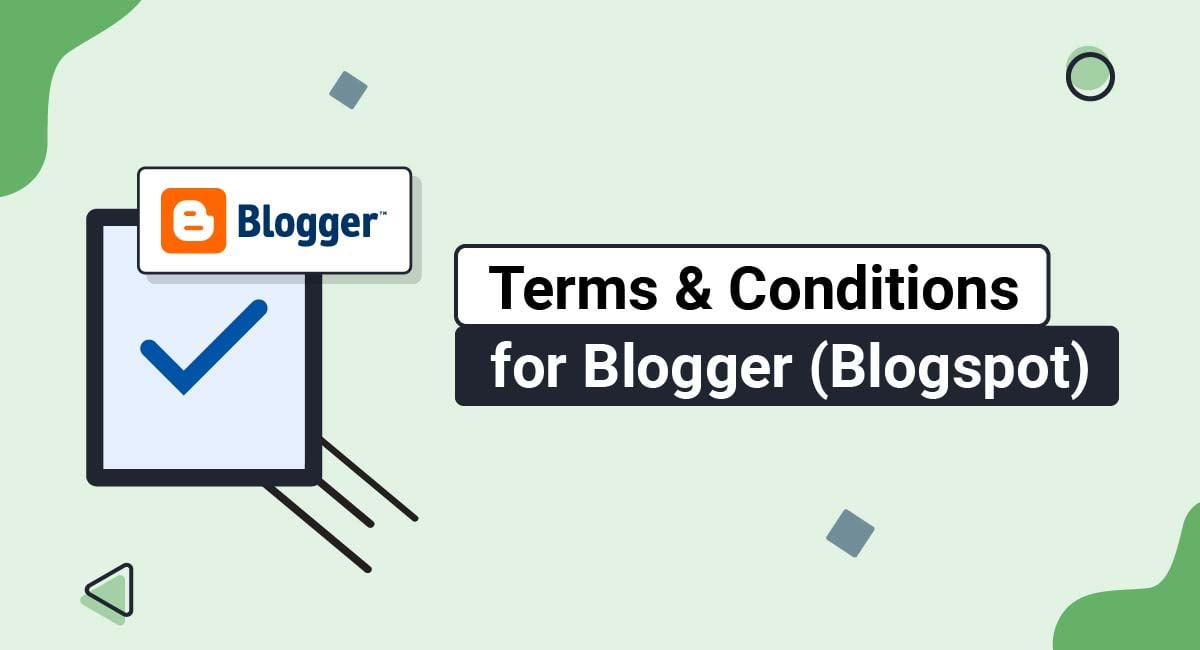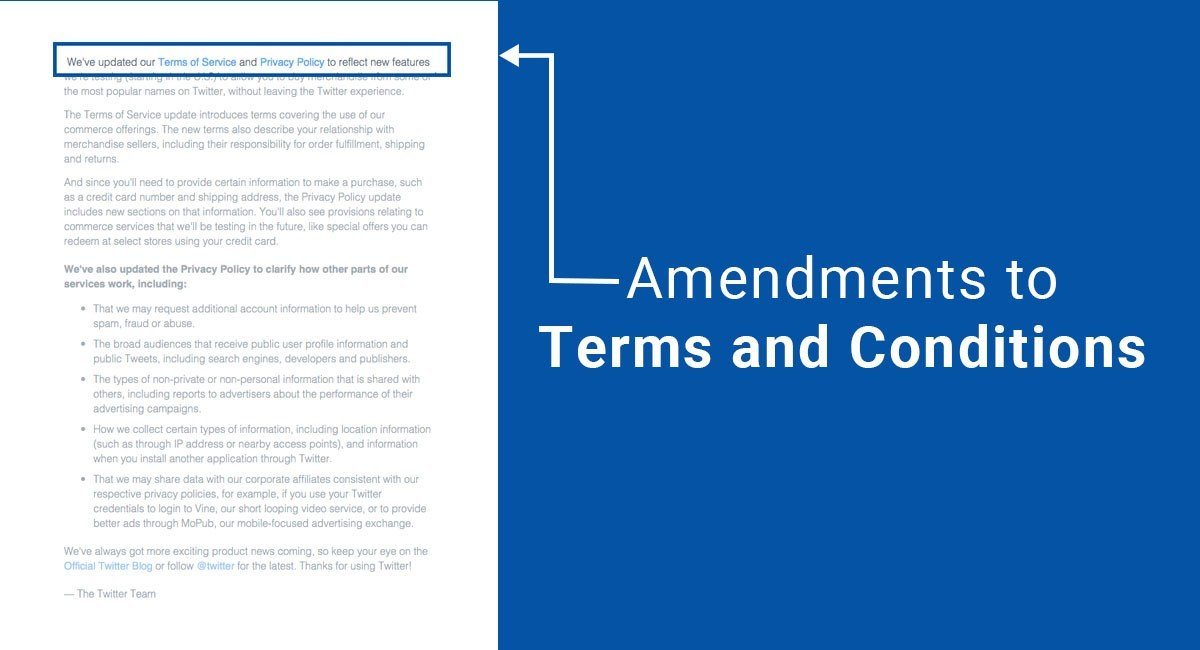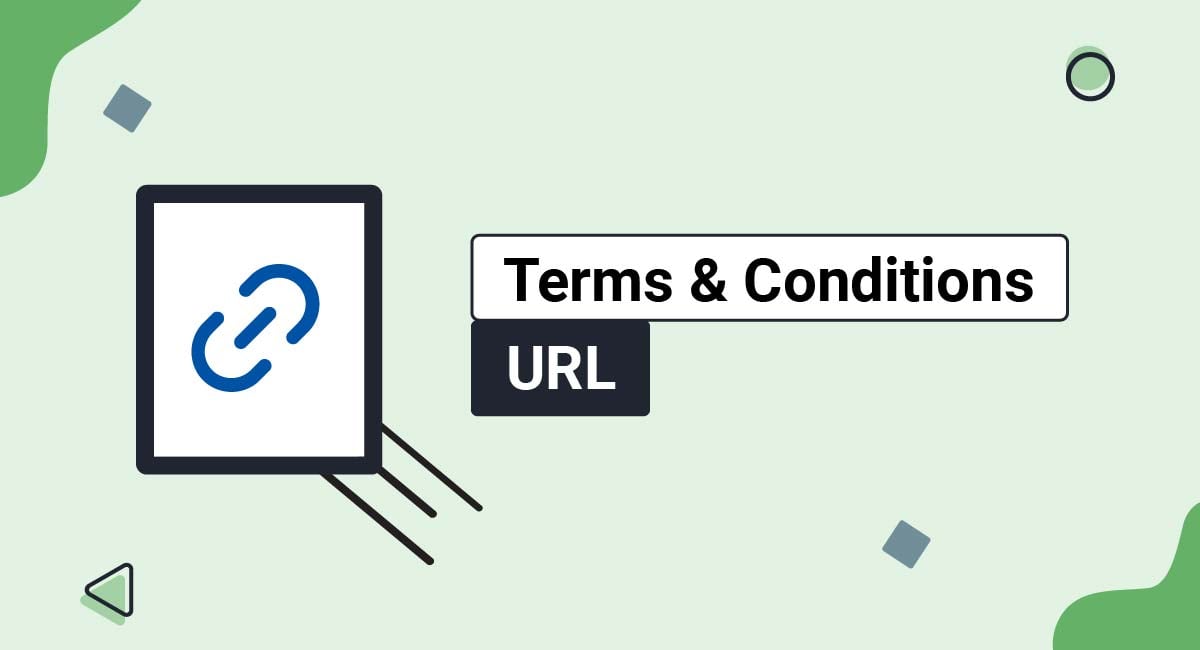So you've built a website or app of your own, but once you have that, you need to defend it. If you have a great logo, someone else might want to use it. It happens all the time, and the first legal line of defense against someone stealing your intellectual property is an Intellectual Property clause.
An Intellectual Property clause lets users know that the content of a website/app is your property. It tells people what they can and cannot use for themselves, and how they're allowed to use it. It's the legal way of making sure you have control over everything you made. After all, you shouldn't put in all that hard work just for someone else to take it.
This article will break down what content should go into such a clause and show some examples of these clauses that can help inspire and guide you when creating your own.
Our Terms and Conditions Generator makes it easy to create a Terms and Conditions agreement for your business. Just follow these steps:
-
At Step 1, select the Website option or the App option or both.
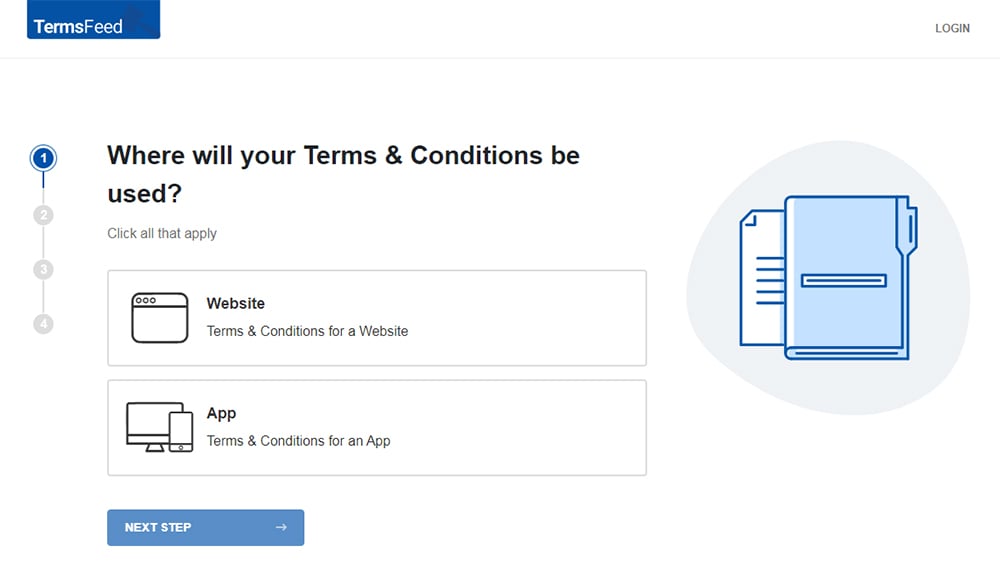
-
Answer some questions about your website or app.
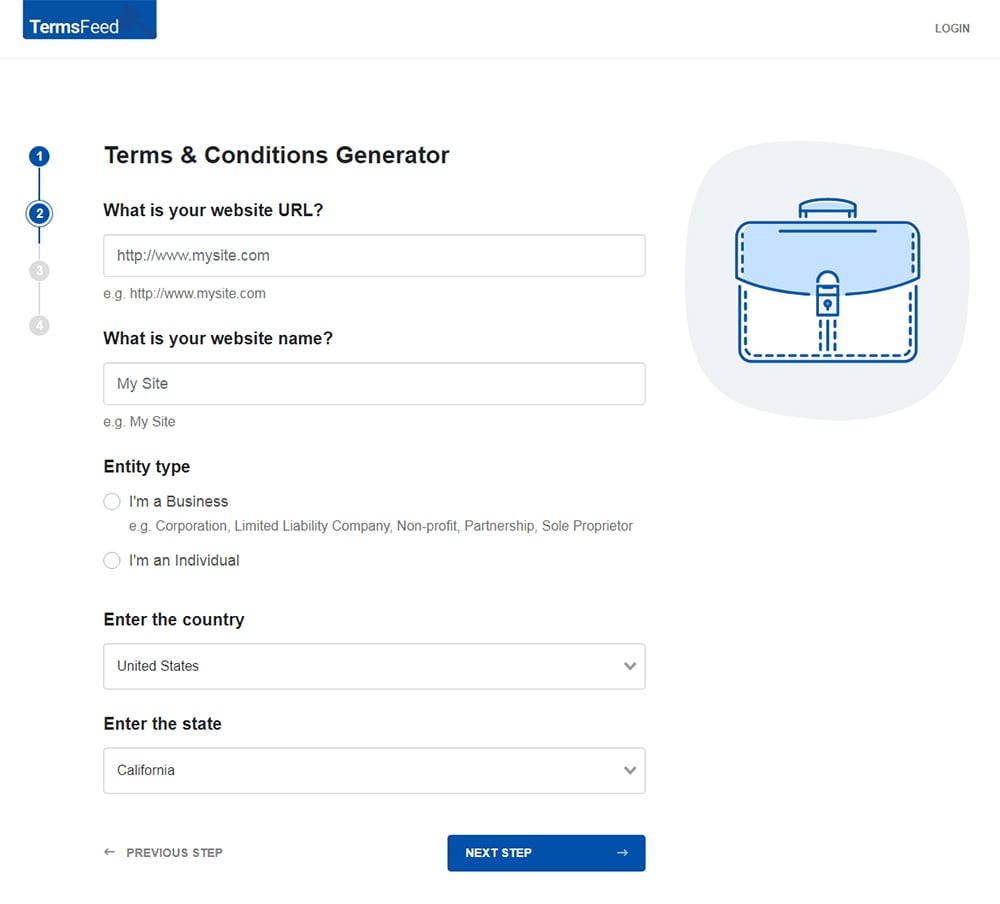
-
Answer some questions about your business.
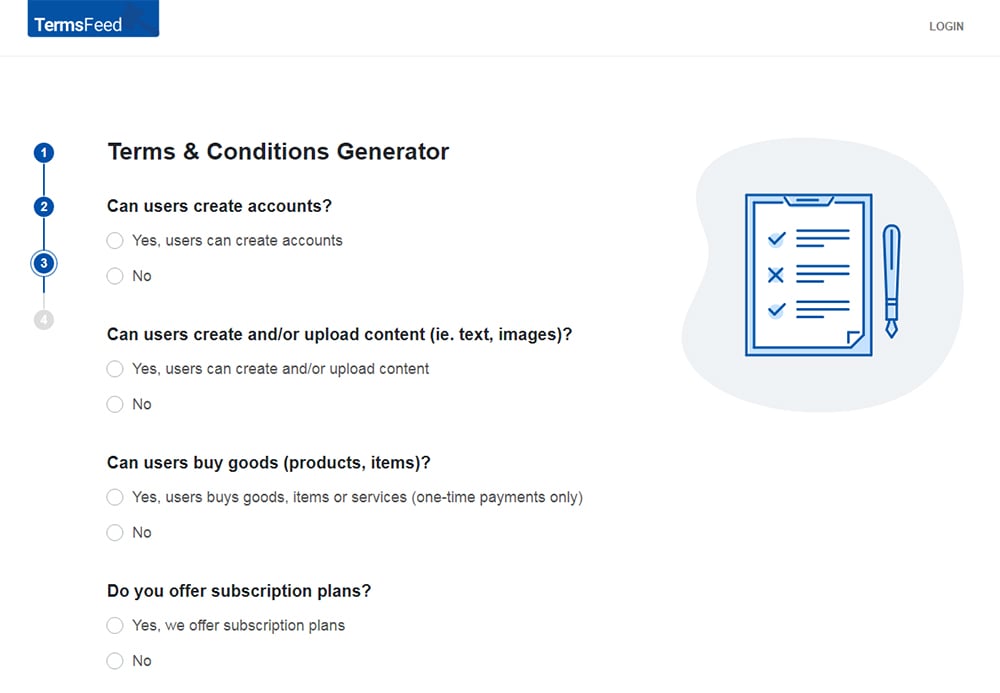
-
Enter the email address where you'd like the T&C delivered and click "Generate."
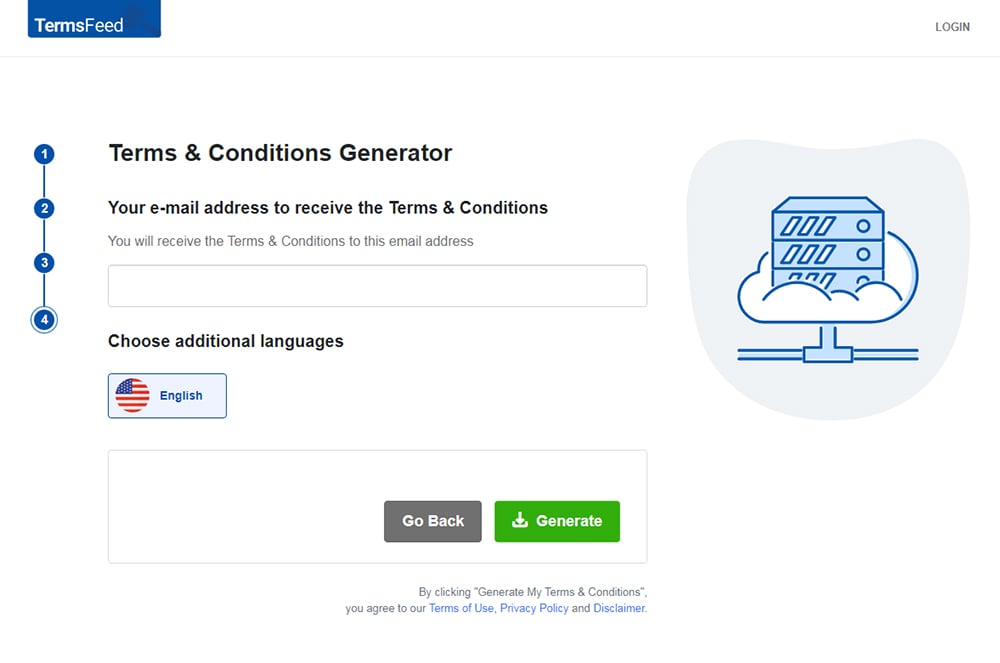
You'll be able to instantly access and download the Terms & Conditions agreement.
- 1. What is Intellectual Property?
- 2. What are Intellectual Property Clauses?
- 3. Why Do I Need an Intellectual Property Clause?
- 3.1. Differences in Intellectual Property Clauses for Terms Agreements and EULAs
- 4. What are the Components of an Intellectual Property Clause?
- 4.1. Your Claim of Intellectual Property and Copyright
- 4.2. Conditions to Download and Copy Content
- 4.3. Exceptions to Conditions to Download and Use
- 5. Summary
What is Intellectual Property?
"Intellectual property" is a general term that includes creative creations of the mind. Designs, symbols, literary and artistic works, and images used in commerce all fall under intellectual property.
Trade secrets, such as how a company finishes a task, are also protected as intellectual property as is proprietary data, like customer lists. These are basically the non-tangible assets that support the success of your efforts.
Your website or app contains many intellectual property elements:
- You likely have a company logo which would be protected under trademark laws.
- The same is true for any logos unique to a mobile game you might develop.
- If you're distributing a mobile game, the game contains music, characters, stories, and voices that are subject to copyright protection.For unique designs for new technology, devices, appliances or processes, you can pursue patents as well as copyright registration.
Registering your intellectual property allows you to pursue remedies should another party copy or infringe upon it.
You can register music, visual arts, literary works, movies, photographs, and digital content at the U.S. Copyright Office or if you require international protection, you can consult the World Intellectual Property Organization to find similar offices in other countries.
There is no such thing as a worldwide protection for intellectual property, so seek protection where you are most likely to attract the largest number of users.
What are Intellectual Property Clauses?
An Intellectual Property clause is a clause that is used in legal agreements such as a Terms and Conditions agreement or an End User License Agreement (EULA) for example. This clause establishes what a website, app, SaaS, etc. does and does not claim as its intellectual property. It also lets users know what can and cannot be copied from the platform.
It may establish conditions under which users can download or use content from the website/app, and may include a reservation of rights that allows the site owner to restrict access to that property at will.
In plain language, this clause says that the contents of a website/app are the property of the site owner. It says what users do and don't have permission to copy, and under what conditions they can copy or download that content.
It can also include language that says the site owner can stop people from accessing the website if they want to.
You can usually find a clause like this in the website's Terms and Conditions agreement. It may have different headers over it, such as "Copyright Notice" "Intellectual Property" or "Trademarks, Copyrights, and Restrictions On Use" but all of these have similar contents.
Clauses like this are used by everything from social media sites for retail vendors, so it's important regardless of what your company sells or how you conduct business.
Why Do I Need an Intellectual Property Clause?
As you likely know already, putting together a full website or app can be an expensive, time-consuming task. The final product of that money and hard work is valuable, and you wouldn't want someone else to copy or steal it from you.
An Intellectual Property clause clearly establishes that the site/app and its contents are property of the site owner and outlines the conditions under which others can use that property.
If someone else takes part of the site or app, such as an image, a function, some code, or anything else, this clause will become important in the ensuing legal action. It will play a basic but important role in establishing that the person who took part of the site should have known that it was the intellectual property of the site owner.
That may seem obvious, but often those apparently obvious facts are the most important to establish as indisputable.
You can use your Terms & Conditions or EULA to protect intellectual property. Provisions regarding intellectual property can address your ownership interests, exclusive use, and enforcement measures.
This is appropriate content for your Terms & Conditions agreement because the agreement is the contract that contains the rules and guidelines for using your app.
Conduct, payment terms, and allowed uses are all issues you would address in this agreement.
If you create apps or run a website that provides any kind of service to customers, a Terms & Conditions agreement is crucial. Without this agreement, you lack authority to terminate abusive accounts or take other action to prevent abuse:
- If a user consistently disobeys your conduct rules, removing that user preserves the quality of your online community.
- Failure to provide payment on time or attempts to reverse-engineer your product can also threaten your business and these can be grounds for user account deactivation if you draft your rules correctly.
The same can be true for intellectual property violations, too. Including an Intellectual Property clause in your Terms & Conditions allows you to deactivate accounts or collect damages in the event that intellectual property rights are infringed or violated.
Differences in Intellectual Property Clauses for Terms Agreements and EULAs
Intellectual property clauses in an EULA are often quite different in scope than those in a standard Terms agreement, especially when viewed within the context of the larger agreement.
Remember: An EULA is a type of legal agreement that sets out the licensing terms for the buyer of your software. When someone buys your software and agrees to an EULA, it'll give them the right to use a copy of your software on their own device.
While the EULA can also cover some basics of payment conditions and terms, time limits on the license, and how they can use the software, the Intellectual Property sections of an EULA are normally tied up with the licensing provisions and can often be quite extensive.
In contrast, a Terms agreement such as a Terms and Conditions more widely covers expected user behavior and the rules for users when they use your software, website, app, etc. The Terms agreement does usually set out a license for your users, but it also covers more broadly how the user is expected to use the service that you have provided them.
This kind of agreement may include sections on acceptable use, dispute resolution, and payment details. IP clauses in a Terms agreement are often shorter and less extensive than what you would expect in an EULA.
What are the Components of an Intellectual Property Clause?
An Intellectual Property clause should both claim the website/app and its contents as the owners' property and let users know whether and how they can copy or download some of that content.
If there are exceptions, such as parts of the website/app which are not property of the website or special cases where users can or cannot download certain content, it should also outline those exceptions.
That gives the clause three distinct parts:
- Claiming the site/app and its contents as intellectual property
- Detailing who can and cannot download and copy that content, under what conditions
- Stating any exceptions to those rules
Your Claim of Intellectual Property and Copyright
In theory, this is pretty simple. You just have to say that the website and its contents are yours. But well-written clauses are detailed, making sure there can't be any mistakes about what belongs to the site's owners. It should also say who exactly owns that content, and by what law they are protected.
For example, if you run a personal blog, you likely want to say the text and information on the blog are yours. But you might have pictures you took yourself, which you should also list out in this clause, as well as any graphics you use for a logo or anything else.
You should also specify that you don't own third-party content, if any may appear on your website/app.
You can see how this can quickly expand if your site or app features multiple times of media.
You should also be specific in who owns that content. Is it you, or is it your company? What's the name of that company? Does the company own some content, while you own others?
These are all questions that may not seem complicated, but you should make sure to answer in your Intellectual Property clause. Just as you didn't claim to own the third-party content, you should also include that the third-party creators own that content.
Finally, you'll want to make sure that users know by what authority you own this property. If you have a copyright or a trademark on some of the content, you should state that. If other intellectual property laws apply, you should include that as well.
Remember that you'll likely have users from other countries, so you shouldn't narrow this down to U.S. law specifically.
A fairly simple version of this is the Hard Rock Hotels Terms of Use. Hard Rock specifies the many types of content on the website that it owns and who owns it. In this case, Hard Rock has affiliates that it makes sure to mention. It also says that internationally recognized laws and treaties, as well as copyrights and trademarks, apply in protecting its intellectual property:

Here's how Meetup addresses its own IP as well as that of others in one detailed clause:
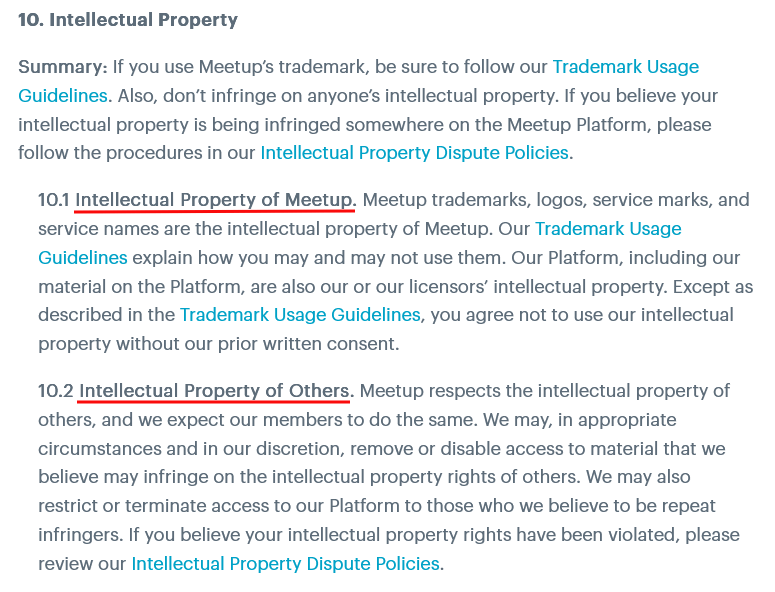
And Steam includes the word "Ownership" in the title of its clause:

Conditions to Download and Copy Content
While the above section is fairly simple, language that specifies the conditions under which users can download and copy content from the website/app can be much more complicated.
You can always simply disallow users from downloading any of your copyrighted or trademarked content, but that may not work for your business model. After all, you might want users to download images that have your logo in them as a part of spreading your brand.
Here's how Meetup states that people need prior written consent to use any of its IP:

The BBC lists out specifically what content users cannot use without getting permission:
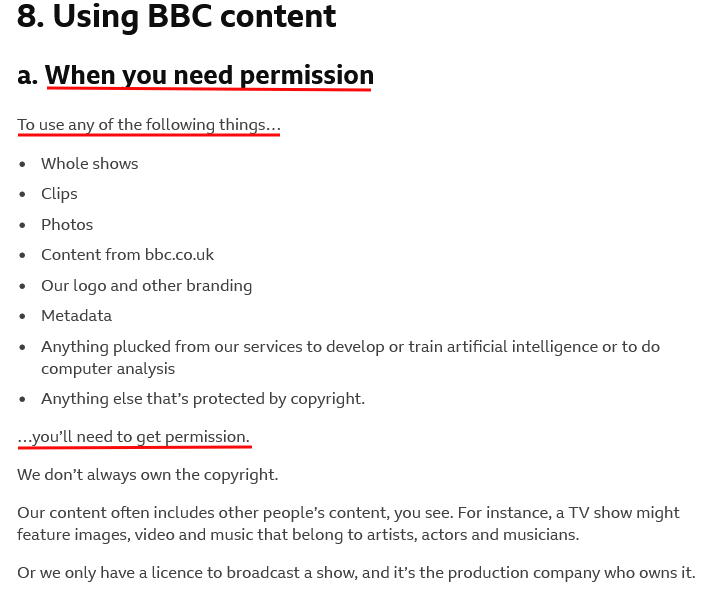
Insider's Intellectual Property Rights clause separates what users "may" and "must not" do regarding IP:
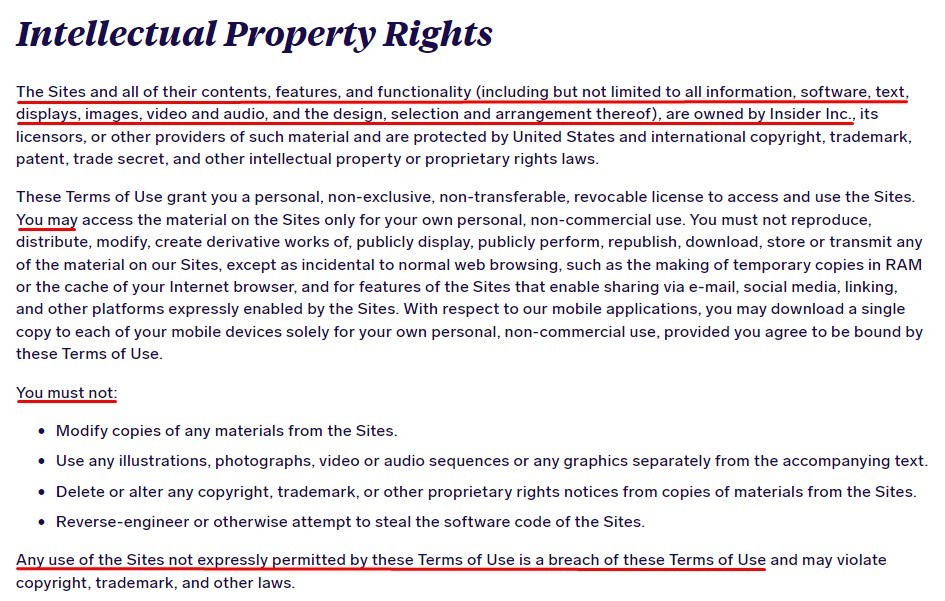
Some site owners or developers may want to allow users more leeway in downloading or copying their content. Your site may have a piece of software you want users to download, or you may want users to use your logo to spread brand awareness.
Regardless of the reason, you may want to outline specific circumstances under which users can copy and download your content. You should outline uses of that content that are expressly forbidden.
For example, the Wells Fargo's General Terms of Use states that a user may download materials for personal or internal business purposes. The clause is even more specific about software and source code, which can only be downloaded if it is "purposely made available... for downloading" as opposed to most of the site's code.
This is preceded by a long list of ways that users are not allowed to use the site's content, making sure that users stay within the explicit lines allowed by the site owners:
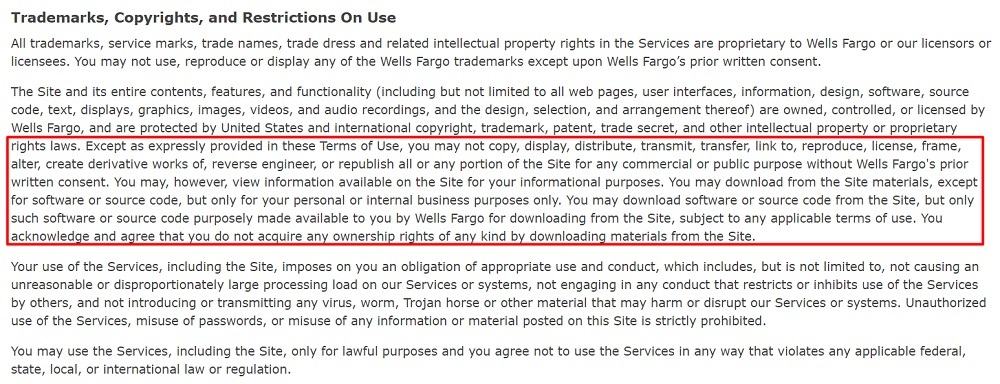
Beyond just allowing your copyrighted and trademarked content to be used in certain circumstances, you may want to list further conditions within those allowable uses.
For example, you may want to say that while users can download your copyrighted logo, they cannot broadcast it on television without your written permission. You can likely imagine a number of similar scenarios that you might want to restrict users away from.
The Clorox Terms of Use has these conditions in a detailed list. For example, users that download or print the site's content must keep legal notices intact with their download or hard copies, and they may not alter the content:
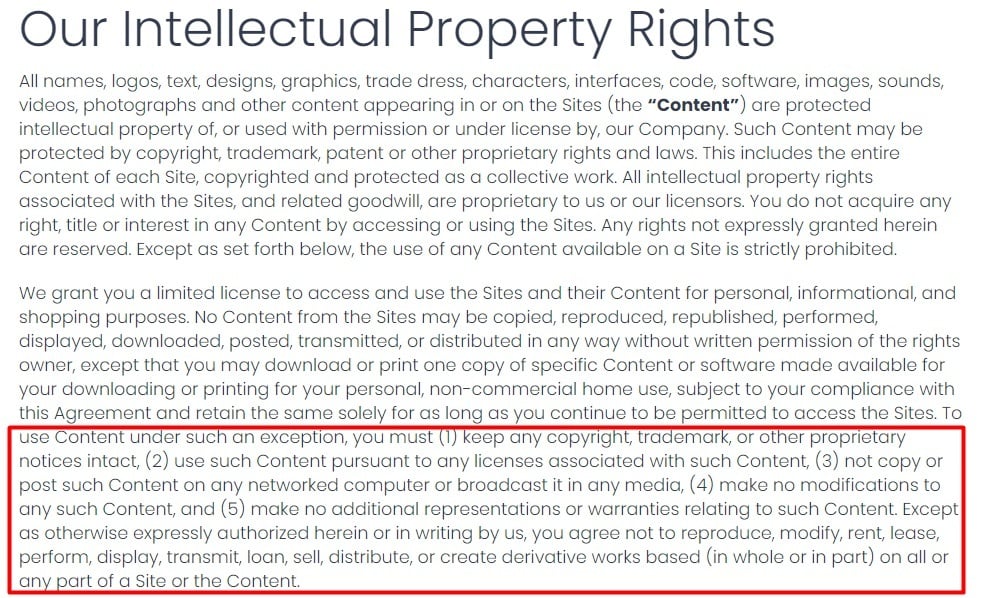
These conditions make sense even for individuals using the content privately, so you should consider including similar conditions in your own IP clause.
Exceptions to Conditions to Download and Use
Depending on how many ways users can use your website/app, you may need to complicate your Terms agreement with exceptions to your conditions to download and use content.
For example, you may consider content submitted by users differently than content you produced yourself, and have different rules about accessing it. You might also sell licenses to use the site's content in ways that would otherwise violate the Terms agreement.
If you run a website/app where users might upload copyrighted content, you may want to treat that content differently than you normally would under your Terms. In that case, the users would likely want to retain the copyright to their content and the rights that come with that.
Situations like that are complicated enough that they might merit creating a separate agreement with the submitters that ignores the intellectual property rules in your Terms agreement.
For example, Verizon has a separate section in its Terms of Use's Copyright Notice to address the "Verizon Developer Community." This section lets Verizon make separate agreements with developers to handle the license rights of applications that other companies develop for use by Verizon's customers. That way, both parties have the leeway they need to negotiate a fair contract that makes sense for a particular case:

Many businesses operate by selling others licenses to use their content. For example, a photographer might sell a license to use the images on her website. While the site's Terms agreement might ordinarily restrict users from downloading the images, the license would provide a legal exception to that rule.
Similarly, ZOO Digital's Terms of Use allow for the possibility that users may enter a "license or service agreement" that would allow them to download or otherwise use content from the website. This may override previous statements that users cannot copy the site's content, and it's important to include if you might use a similar business model in the future:

Summary
An Intellectual Property clause is a key part of any Terms agreement. It will also be found in an EULA.
This clause establishes what the website/app owner claims as their intellectual property and lets users know what they are and are not permitted to do with that property. The clause can be powerful in preventing disputes over intellectual property, and it's certainly important if a dispute ever does arise.
The clause has three parts, each serving its own purpose:
- A section stating that the website's/app's content belongs to the site's owner (with some possible exceptions) and is protected by copyright, trademark, and other laws
- Conditions under which users are allowed to download and copy the copyrighted and trademarked content
- A description of the exceptions to those conditions, if any may apply

Comprehensive compliance starts with a Privacy Policy.
Comply with the law with our agreements, policies, and consent banners. Everything is included.
